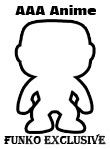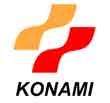Anime News
|
Manga madnes Date: 3/31/2005 |
|
Japanese comic books make themselves at home on American bookstore shelves By Franklin Harris DAILY Online Editor fharris@decaturdaily.com ? 340-2408 Walk into any chain bookstore, and you'll find that a revolution is under way. Spider-Man and Superman may be squeezed into a ghetto beside the "Dungeons & Dragons" manuals, but other comics fill long aisles of shelves and occupy display stands in high traffic areas. Japanese comic books, or manga, have come to America, and they're impossible to miss. ? This is good news for Nanako Hori, 12, a student at Cedar Ridge Middle School, who moved here from Japan with her family seven months ago. (Her father, Kiyoshi, is an engineering manager for Daikin America's Decatur plant.) For her, manga's popularity has helped ease the culture shock of moving to a new country where she is still learning the language. "It's great because a lot of my American friends know about Japan through comics," she said through translator Eriko Ellis, general affairs supervisor at Daikin. "It's nice that American students will come up to me because of manga." In Japan, everyone reads manga ? boys and girls, men and women, children and adults. By some estimates, nearly a quarter of all books and magazines published in Japan are manga. By contrast, America's largest publishers, Marvel Comics and DC Comics, have seen their sales plummet since the early 1990s, when collectors and speculators fueled a boom in American superhero comics. While some U.S. publishers have been in the business of translating manga into English since the 1980s, it is only in the past five years that manga has become big business here. "It suddenly took off in 1999," said Robert Boyd, who has helped market manga for U.S. companies like ADV Films and LPC Group, and is writing a book about manga. "Obviously, the success of Pokemon, Dragon Ball and Sailor Moon on TV was the tipping point. But what's happening now seems to be well beyond the faddishness of Pokemon." Boyd believes manga's popularity goes beyond that of Japanese cartoons (anime). "Manga have grown in popularity (based on sales) over the past year, while anime DVD sales have been flat. So, obviously there is a connection, but it would be wrong to suggest that manga is merely a coattail rider," he said. While U.S. publishers like Viz and Tokyopop at first published manga translations in a stapled 22- or 32-page monthly format similar to U.S. comics, they have found more success by copying the format popular in Japan. Now, almost all manga sold in America are published as small paperbacks of about 200 pages and priced at about $10 each. Like Japanese comics, they read from right to left, an "authentic manga" format that has proven surprisingly popular with American readers. Boyd doesn't believe manga's popularity is a fad like the American superhero boom. "Manga are successful right now because of actual consumers who buy the books to read them. In the '90s, people actually bought entire longboxes of given issues of a comic as an investment. That was bound to fail eventually." Manga also reaches two groups of readers that American superhero comics don't ? children and girls. "I think younger readers in general don't think American comics are cool. They see them as something perhaps for big brother or dad," Boyd said. "But more importantly, American comics are very, very male-oriented. Even Japanese comics that were aimed at boys in Japan, like 'Love Hina,' are more girl-friendly than virtually anything published by Marvel, DC, Dark Horse or Image ? with a few exceptions. Nanako's brother, Kentaro, 17, a student at Austin High School who draws his own manga, notices other differences between manga and American comics. "Japanese comics have more variety, but each story also has a main theme," he said. "It could be friendship or love, but it has a message that the author is trying to get across to the readers." While Japanese boys' manga (shonen) also appeals to American girls, some girls' manga (shojo) surprisingly appeals to some American boys. "I was amazed to see that some boys in my class were reading what in Japan would be considered girly comics," Nanako said. "In Japan, that would be unthinkable." The entire Hori family mostly enjoys shonen manga. "My life is no romance now," Nanako's mother, Naomi joked. "So, I like to read boys' adventures." |
| Source: The Decatur Daily |























